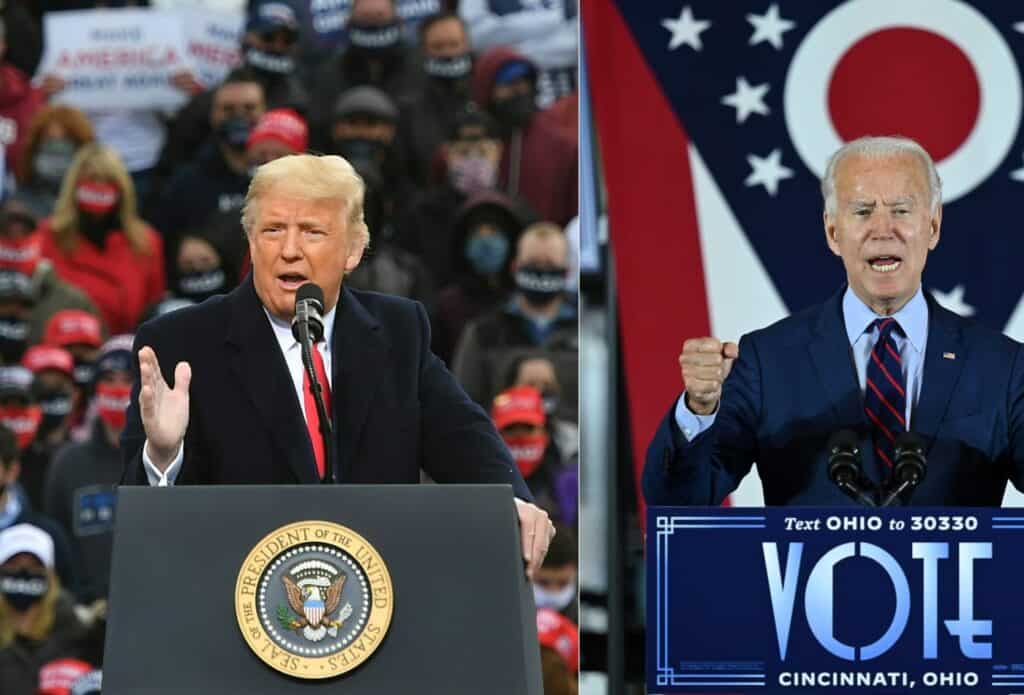As America waits to find out who will be its next president, the election so far has made at least one thing clear: the United States is a politically divided country.
And while it may seem that the only thing people can agree on is that polarization, there are actually productive ways to engage with people who have differing political beliefs, according to Eric Liu, the CEO of non-profit Citizen University, which works to build a stronger participatory democracy.
First, what doesn’t work: Attacks (Why did you vote for that idiot? Or, Why did you do such a stupid thing?) will not strengthen citizenry or bring a divided nation together, Liu said.
“It’s really hard to build those kinds of bridges if you start out with the most polarizing thing,” Liu told NPR’s David Greene on “Morning Edition” on Tuesday.
Instead, Liu said to be curious to learn about the person who has the different political view.
″[B]egin with, ‘What shaped you? What formed your worldview? What were some of the big experiences in your life?’” said Liu, who is also executive director of the Citizenship & American Identity Program at the Aspen Institute, a Washington DC-headquartered nonpartisan non-profit educational organization.
Engaging productively does not mean you will agree with the other person’s perspective, but it may provide understanding, Liu told NPR.
“It may be even after you humanize this person and unpack a bit of their story that you’ll still feel like, boy, this is just deeply sad to me now that I understand this person’s story that they still voted this way,” he said. “There absolutely is room for anger. There’s room for pain. We’ve got to be able to find a conduit for that.”
But according to Liu, who previously served as President Bill Clinton’s deputy domestic policy adviser and as a speechwriter, being a good citizen is about doing better.
“What it means to live like a citizen is not simply to vent. It is to vent with intention, to vent in a way that allows you to do something constructive with it. It’s about having better arguments,” Liu said. “You know, the problem in American civic life, even as polarized as we are right now, is not that we’re having too many arguments. The problem is that we’re having arguments that are too stupid.”
The goal of asking more productive questions is to have more productive disagreements, Liu said.
“What we’ve got to be able to do is figure out how to have better arguments. And what that means is arguments that are more grounded in history, more literate in power, more honest and intelligent emotionally and recognizing that people do not come into these civic and political arguments as rational, calculating machines,” he said.
“We come in as feeling, hurting, loving, hoping human beings who want to be the heroes of our own stories. And if we can’t acknowledge that same set of motivations in the person we’re arguing with, then that’s going to be really difficult. But when we do acknowledge that, that can, in fact, mean conflict. It can, in fact, mean tension. But that’s OK.”
